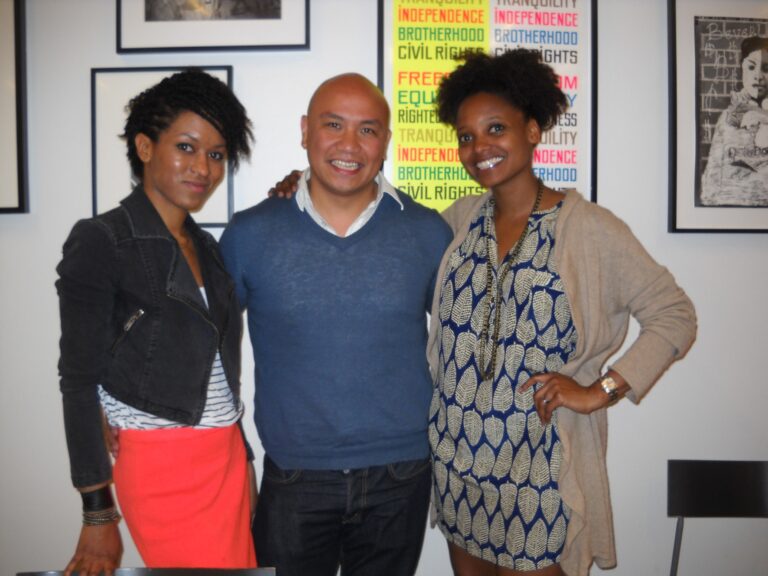Bookmarks #2: Brattleboro Books, Brattleboro, VT
The Bookmarks series will profile unique bookstores and literary spaces across the country. These landmarks, often celebrated within the cities featured in our Literary Boroughs series, are home to myriad readings, panels, classes, workshops, and—of course—books. Posts are merely introductions to these spaces; we encourage readers to contribute additional details in the comments section.
I meet Michael Tenney amidst the stacks of books that circle his desk like stalagmites. It’s a warm day in April and customers flit in and out of Brattleboro Books, all reciting an unchanging refrain: “What’s up, Mike?” We settle in behind the register and Tenney, ageless in faded flannel and a white ponytail, leans back and smiles at everyone. A man trots up from the basement, ecstatic because he’s just found a two-volume Allan Nevins hardcover set that he’s wanted for ages. “It’s been waiting for you,” says Tenney, and the man heads back downstairs to discover more treasures.
Another regular comes in and wordlessly leaves his two dogs (Esther and Cara) by the desk so that he can run over to the grocery store. Tenney pulls handfuls of liquorice flavored dog treats from under the register and gives a dozen bones to each dog. (“Esther, I know you’re still hungry. I could feed you a dozen more and you’d still be going.”) He does this every week, he tells me.
I ask him about books he’s enjoyed reading lately and he takes three from the top of a stack right next to him, as if he’s consumed and remembered the entire store. This week it’s a Bulgakov, The Deluxe Transitive Vampire, and a book about a spire in the wilds of Borneo. He turns over each one. “I wish I could read every book that comes in here,” he says, “but there are just so many.” He pauses to flip through a children’s cook book. “And many of them will be here long after I’m gone.” The dogs, very full now, sprawl out on the floor.
The origins of Brattleboro Books:
Brattleboro Books sprouted twenty-five years ago amidst half a dozen other thriving independent bookstores in town. “You used to be able to stand on the corner and see all of the bookstores but one; you had to peek around the bend to see the last shop,” says Tenney, tipping his head toward the front door. Brattleboro Books originally inhabited the storefront adjacent to where it stands today. At that time, the current-day space was home to a toy shop. The first owners then bought the toyshop in order to expand. (Remnants of the toyshop era still appear here and there. Stacks of books make room for the occasional teddy bear; a large stuffed tiger takes her post on the rafters.)
The store ran swimmingly for about ten years, but then “the market changed, the recession hit, and the town succumbed to a few disasters,” Tenney says. “We had a couple of tough years and as a result, we chose to downsize. We used to have about 75-80,000 books, but we’re down to around 25,000 now.”
Tenney got into the business about fifteen years ago, right when the market felt its highest highs and—shortly thereafter—its lowest lows. “Things were really booming back in the early Aughts,” says Tenney wistfully. “We had a couple of people on staff, plus myself and my wife. It was all we could do to keep up with the store. But then things changed a lot.” Other local bookstores began folding, and Brattleboro Books closed its right wing. Now Tenney runs the shop by himself most of the time. “At this point, the used books business can’t afford much help.”
Brattleboro Books’s wares:
By the late Aughts, the economy was in full downswing, the Internet was in full upswing, and Tenney noticed a change in his customers’ buying habits. “Every year a different section wouldn’t sell as well. Our reference section was the first to drop off.” Much became available online and so Tenney adjusted his wares to cater to the sections that still thrive: “fiction, mystery, poetry, and large swaths of non-fiction.” But not just any non-fiction, Tenney argues. “Nathaniel’s Nutmeg is the kind of book that sells really well. Or Into Thin Air. Non-fiction has to be a lot more than it used to be. It really has to grab you.”
Tenney also carries a sizable collection of collector, signed, and first editions, but he labels Brattleboro Books “a pedestrian shop in the best sense of the word. It’s really meant for everyday use. And sometimes ‘everyday use’ means picking up a nice Faulkner in a dust jacket or an early edition of In Cold Blood. So we have a few things like that.” Tenney continues to pay mind to what people are buying, but confesses that he’s still figuring out the evolving market. “I can’t begin to know the depths of my customers’ interests. I just take some shots at it and hope that I’m right. I have to trust that people will like what I sell.”
A little used bookstore and a big new Internet:
Despite his penchant for—and reliance upon—used books, Tenney feels no resentment toward digitized literature. “As someone who’s always prided himself on being somewhat of an environmentalist, [I think that] not having to buy The New York Times in paper edition is one of the great inventions of all humanity, as far as I’m concerned. What a boon. How tremendous that we can have something as compelling as The New York Times instantaneously delivered without all the environmental waste.”
The shop’s aesthetic reflects Tenney’s attitude toward his digital competitors—it’s a humble, worn, and altogether timeless space. The sign out front describes its wares as “Quality Remainders.” Tenney barely advertises, he admits. Instead, he relies on an unflagging local fan base and frequent out-of-towners. “If all the lights are off, the Open flag isn’t hanging, and I’ve got a big Closed sign out front, it doesn’t matter: people will still pull on that door all day long. There’s just a built-in expectation that this place is here and always open.” After he presents me with this scenario, Tenney realizes that he can’t remember the last day he didn’t open up shop.
Tenney is driven in part by his belief in a stabilizing industry. “I think we crossed a critical point somewhere in the last few years during which people made the decision to continue needing physical books even though we have the digital means,” he says. “The full transition may happen eventually, but my sense is that it will take at least a generation before we get to the point where books are objects of interest more than objects of utility.” Tenney’s eyebrows go up. “So we’ll see!”
For Tenney, the book business is a grand adventure, one that continues to fuel him regardless of how used books factor into the equation. He continues with excitement: “Another new digitized library just became available. It opens up a lot of doors. Plus we have books that nobody knows what to do with and so now we’re seeing altered books, books turned into art. ‘The book is no longer needed for its information; let’s see what else we can do with it;’ this is the artist’s appreciation of the book as an object.” He comes to a conclusion: books will always be around, but their forms and uses will change.
The store’s modus operandi:
In the middle of our conversation, Tenney answers the phone and chirps into the receiver, “I’m going to send you across the street. They’ll have what you’re looking for.” He hangs up and launches into a glowing history of the town, its rich involvement with the arts, and the many bookstores that have come and gone. Tenney, I grow to realize, wants people to appreciate Brattleboro in totality and if they happen to buy his books—all the better. “We want people to come back for our wares. It doesn’t matter what store they buy from.”
And many Brattleboro residents share Tenney’s communal spirit. “There’s a terrific used goods ethic up around here; we try to get every last bit of life out of an object. Part of it is economic and part of it is philosophic.” Tenney speaks fondly of the communes and vegetarian restaurant that took root in 1960s Brattleboro. “That flavor really stayed.”
Many of the customers who sell their books to Brattleboro Books opt to receive store credit and Tenney, a big proponent of this system, neatly catalogs their credits on hundreds of handwritten file cards. “Some people have built up so much credit that they can literally shop here the rest of their lives and not spend any money. I’ve never seen any cash from [some regulars] because they’ve built up so much credit over the years.” Ultimately, says Tenney, “It’s just about doing everyone a service, doing the right thing, and—god willing—making just enough money to pay rent.”
The local celebrity:
Many literary figures frequented Brattleboro, Vermont, before Brattleboro Books opened its doors. A young Rudyard Kipling and his new wife made a home in Brattleboro (“He was our first literary superstar. A Stephen King before Stephen King was Stephen King!”); Harriet Beecher Stowe often visited Brattleboro for its famous water cure; and Thoreau climbed the local mountains. But one literary celebrity frequented Brattleboro Books, and quite recently, says Tenney. “Saul Bellow used to come in here a lot. He was a regular because he summered just up the road. He’d stroll in, get lost down in the basement for a couple hours, and come up with two or three books that somehow factored into a piece that he was writing. It was very cool. Just the fact that he stopped by is a great feather in my cap!”
For some, independent bookstores sit in the gaping maw of a scary digital age. It’s a common and not at all irrational perspective. But for Tenney, it’s a welcome challenge, a thrilling and magnetic sea change. “We will come to a time when the book is not just superfluous—it won’t make sense anymore,” says Tenney without an ounce of bitterness. For now, though, he believes in the physical book and its magical powers. Books, to Tenney, are as current as they ever were. “And that,” says Tenney like a true New Englander, “is wicked liberating.”


